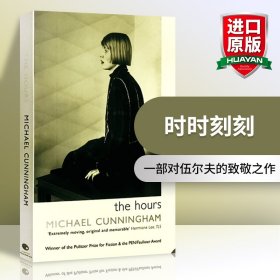
英文原版 The Hours 时时刻刻 1999普利策小说奖 英文版 进口英语原版书籍
书籍内容简介可联系客服查阅,查书找书开票同样可以联系客服
¥ 50 ¥ 50 九五品
库存42件
广东广州
认证卖家担保交易快速发货售后保障
作者Cunningham, Michael
出版社Fourth Estate
ISBN9781841150352
出版时间2003-01
装帧平装
定价50元
货号YB-1356
上书时间2024-03-07
- 最新上架
商品详情
- 品相描述:九五品
- 商品描述
-
内容摘要
书名:The Hours 时时刻刻 难度:Lexile蓝思阅读指数960L 作者:Michael Cunningham迈克尔·坎宁安 出版社名称:Fourth Estate 出版时间:1999 语种:英文 ISBN:9781841150352 商品尺寸:12.9 x 1 x 19.8 cm 包装:平装 页数:240 The Hours《时时刻刻》是迈克尔·坎宁安的作品,这是一本关于英国著名意识流小说作家弗吉尼亚·伍尔夫及其小说代表作《达洛维夫人》的实验性小说。 《时时刻刻》不仅登上了《纽约时报》畅销书榜,同时获得“普利策小说奖”和“笔会/福克纳奖”的双项殊荣。由小说改编,梅丽尔·斯特里普、朱莉安·摩尔和妮可·基德曼联袂主演的同名电影获2002年奥斯卡奖。 精彩书评: “一位美国作家展现美国生活的杰作。”—— 普利策奖颁奖词 “丰富、优美的场景相互连接……这是一部精湛的成功之作。这本书另一个巨大的成功还在于,他让读者相信,深刻共享伟大的文学作品的思想是可能的,文学能向人们展示如何生活,以及应该向生活要求些什么。”——《出版人周刊》 “《时时刻刻》是一本能提升境界的书,坎宁安的写作精彩绝伦。”——《星期日独立报》 “引人入胜,充满想象力和人性的关怀。”——《观察者》 “一部对伍尔夫的致敬之作,但坎宁安把伍尔夫带进了自己的世界一个充满了世纪末的危险,但也有珍贵时刻的世界。”——《纽约时报》 “一章交替一章的三个故事,紧密交织成三部曲。这是坎宁安成熟、杰出的作晶。”——《华盛顿邮报》 “在似乎已无人尊重前代文学时,坎宁安却以他的深情和无懈可击的技巧做到了。”——贾斯廷·克罗宁 Review “The Hours is a book which heightens the perception of the reader. Cunningham’s craftsmanship is overwhelming.” —Robert Farren,Independent on Sunday “An extremely moving, original and memorable novel.” — Hermione Lee,TLS “Engrossing, imaginative and humane.” — Richard Francis,Observer “The Hours refracts the lives of three women through the prism of a single day. Michael Cunningham evokes these three discrete characters with rare skill.” — Financial Times “The concept behind the novel is bold, the execution rich with feeling.” — Helen Dunmore,The Times “A sensitive marriage of intelligence, integrity and finely textured emotions.” — Sunday Times “Cunningham has found an American tone which is exhilaratingly modern—tense, tender and completely without strain.” — Guardian 弗吉尼亚?伍尔夫,受严重的精神衰弱症影响,正在构思她的新作《达洛维夫人》; 克拉丽莎,二十世纪九十年代纽约的出版编辑,被诗人好友托马斯称为“达洛维夫人”,她为托马斯举办了一场晚会,当晚却目睹了托马斯跳楼自杀; 布朗太太,二战后住在加州的家庭主妇,《达洛维夫人》的读者,渴望摆脱索然寡味的生活。 三个女人的一天,构织成一部关于人的失落、绝望、恐惧、憧憬和爱的作品。坎宁安凭借三人之间的微妙联系,将三个时代的并置于同一时间维度里,通过平行叙述来思考女性的价值、生活的本质。 Exiled in Richmond in the 1920s, taken from her beloved Bloomsbury and lovingly watched over by her husband Leonard, Virginia Woolf struggles to tame her rebellious mind and make a start on her new novel. In the brooding heat of 1940s Los Angeles, a young wife and mother yearns to escape the claustrophobia of suburban domesticity and read her precious copy of Mrs Dalloway. And in New York in the 1990s, Clarissa Vaughan steps out of her smart Greenwich Village apartment and goes shopping for flowers for the party she is giving in honour of her life-long friend Richard, an award-winning poet whose mind and body are being ravaged by AIDS. These are the characters in Michael Cunningham’s exquisite and deeply moving new novel, which takes Woolf’s life and work as inspiration for a meditation on artistic behaviour, failure, love and madness. Moving effortlessy across the decades and between England and America, Cunningham’s elegant, haunting prose explores the pain and trauma of creativity and the immutable relationship between writer and reader. 迈克尔·坎宁安,美国当代著名作家。 目前在耶鲁大学担任创造性写作课程救授。 1900年出版《末世之家》,受到广泛赞臀。 1995年获得怀廷作家奖。 1998年作品《时时刻刻》获得巨大成功,登上《纽约时报》畅销书榜,同时获得普利策奖和笔会/福克纳奖,并被改编成同名电影,妮可·基德曼凭借该部影片摘得第75届奥斯卡女主角奖。 1999年获得欧·亨利短篇小说奖。 2005年作品《试验年代》同样备受好评。 2011年作品《夜幕降临》长居《洛杉矶时报》畅销书榜。 Michael Cunningham was raised in Los Angeles and now lives in New York. His first novel, A Home at the End of the World, was published in 1990 and his second, Flesh and Blood, in 1995. His work has been published in the New Yorker. She hurries from the house, wearing a coat too heavy for the weather. It is 1941. Another war has begun. She has left a note for Leonard, and another for Vanessa. She walks purposefully toward the river, certain of what she’ll do, but even now she is almost distracted by the sight of the downs, the church, and a scattering of sheep, incandescent, tinged with a faint hint of sulfur, grazing under a darkening sky. She pauses, watching the sheep and the sky, then walks on. The voices murmur behind her; bombers drone in the sky, though she looks for the planes and can’t see them. She walks past one of the farm workers (is his name John?), a robust, small-headed man wearing a potato-colored vest, cleaning the ditch that runs through the osier bed. He looks up at her, nods, looks down again into the brown water. As she passes him on her way to the river she thinks of how successful he is, how fortunate, to be cleaning a ditch in an osier bed. She herself has failed. She is not a writer at all, really; she is merely a gifted eccentric. Patches of sky shine in puddles left over from last night’s rain. Her shoes sink slightly into the soft earth. She has failed, and now the voices are back, muttering indistinctly just beyond the range of her vision, behind her, here, no, turn and they’ve gone somewhere else. The voices are back and the headache is approaching as surely as rain, the headache that will crush whatever is she and replace her with itself. The headache is approaching and it seems (is she or is she not conjuring them herself?) that the bombers have appeared again in the sky. She reaches the embankment, climbs over and down again to the river. There’s a fisherman upriver, far away, he won’t notice her, will he? She begins searching for a stone. She works quickly but methodically, as if she were following a recipe that must be obeyed scrupulously if it’s to succeed at all. She selects one roughly the size and shape of a pig’s skull. Even as she lifts it and forces it into one of the pockets of her coat (the fur collar tickles her neck), she can’t help noticing the stone’s cold chalkiness and its color, a milky brown with spots of green. She stands close to the edge of the river, which laps against the bank, filling the small irregularities in the mud with clear water that might be a different substance altogether from the yellow-brown, dappled stuff, solid-looking as a road, that extends so steadily from bank to bank. She steps forward. She does not remove her shoes. The water is cold, but not unbearably so. She pauses, standing in cold water up to her knees. She thinks of Leonard. She thinks of his hands and his beard, the deep lines around his mouth. She thinks of Vanessa, of the children, of Vita and Ethel: So many. They have all failed, haven’t they? She is suddenly, immensely sorry for them. She imagines turning around, taking the stone out of her pocket, going back to the house. She could probably return in time to destroy the notes. She could live on; she could perform that final kindness. Standing knee-deep in the moving water, she decides against it. The voices are here, the headache is coming, and if she restores herself to the care of Leonard and Vanessa they won’t let her go again, will they? She decides to insist that they let her go. She wades awkwardly (the bottom is mucky) out until she is up to her waist. She glances upriver at the fisherman, who is wearing a red jacket and who does not see her. The yellow surface of the river (more yellow than brown when seen this close) murkily reflects the sky. Here, then, is the last moment of true perception, a man fishing in a red jacket and a cloudy sky reflected on opaque water. Almost involuntarily (it feels involuntary, to her) she steps or stumbles forward, and the stone pulls her in. For a moment, still, it seems like nothing; it seems like another failure; just chill water she can easily swim back out of; but then the current wraps itself around her and takes her with such sudden, muscular force it feels as if a strong man has risen from the bottom, grabbed her legs and held them to his chest. It feels personal. More than an hour later, her husband returns from the garden. “Madame went out,“ the maid says, plumping a shabby pillow that releases a miniature storm of down. “She said she’d be back soon.” Leonard goes upstairs to the sitting room to listen to the news. He finds a blue envelope, addressed to him, on the table. Inside is a letter. 1234567
— 没有更多了 —


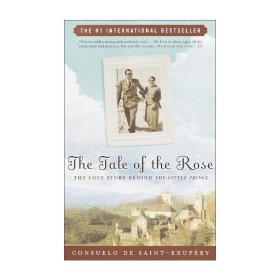
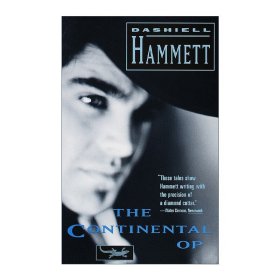
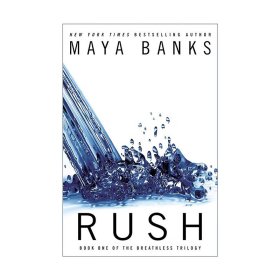

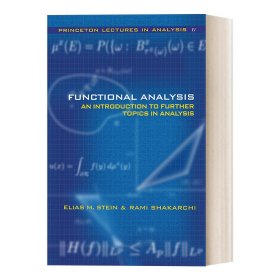

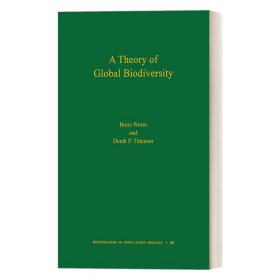
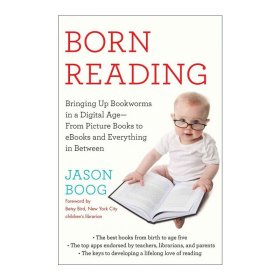


以下为对购买帮助不大的评价